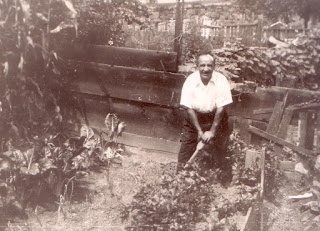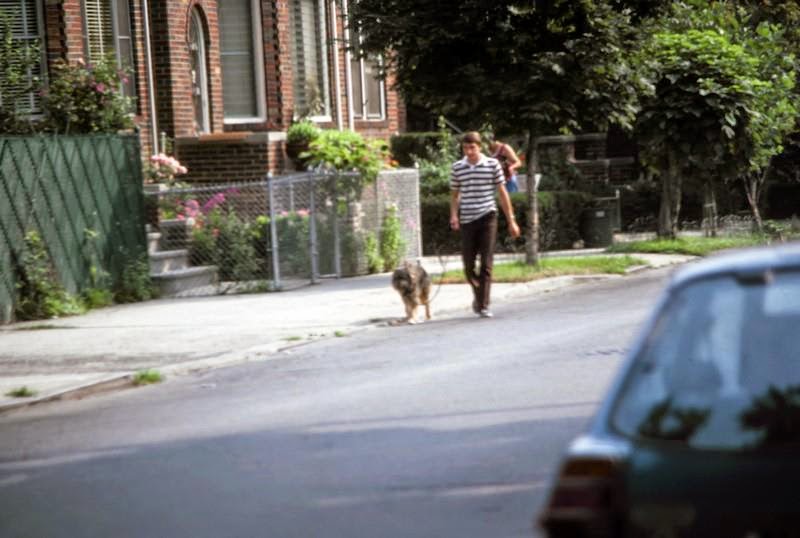I just learned that an old woman from the old neighborhood
passed away. I was told she had lived with her family in the Bronx’s
Kingsbridge for almost three-quarters of a century. At one time both a mother
and father lorded over a brood of five children. Seeing as the decedent was
just shy of ninety years of age—and the youngest among her siblings—you can
imagine there aren’t too many of them left. Only one sister, in fact,
remains on this earthly plane, and she is in a nursing home.
Such is the march of time—out with the old and in with the
new. However, this large family of three boys and two girls avoided tying the
knot altogether. Not a single one of them married and had children of their
own. I’m certain there were layered reasons for this life course, particularly
in a time when dysfunctional families were more prone to live
under the same roofs come hell or high water; when men went off to war, too,
returned home, and sometimes had to permanently anesthetize themselves to
forget the horrors they experienced.
I really don’t recall anything about this particular
family, who lived only a couple of blocks away from me while I was growing up, so I
don’t have a clue what their particular life situation was, and why they chose to live the lives they did. I didn’t even know their last name until a couple of
days ago. From my perspective at least, it is an unusual one that begins with the letter Z and is synonymous with the words “acne” and “pimple.” Actually, I feel a certain loss that I
wasn’t aware of their surname in my spry and enthusiastic youth, because I’m
certain it would have entertained me on some higher level. It would have
been a perfect last name to affix to a character in a work of fiction.
In light of this woman’s passing, I was asked if I
remembered one of her brothers, who was known in some neighborhood circles by
the moniker “Sleepy Eyes.” There was a surfeit of oddball characters in the old
neighborhood. Many of them were assigned clandestine nicknames—for
identification purposes only. However, I didn’t recollect "Sleepy Eyes." His branding must have occurred before my time, I concluded. I heard,
too, that old “Sleepy Eyes” liked his drink, and was often seen venturing to,
or coming from, one of the neighborhood’s many watering holes.
Light bulb above the head moment: I recalled a fellow who
frequently walked by my house when I was a boy—a man whom I also remember lived in
the vicinity of where this family called home for the better part of a century.
While I didn’t know him as “Sleepy Eyes,” his unique visage gave him a certain star appeal in the pantheon of intriguing
neighborhood characters. He had a rather large head, distinctive bulbous nose, and assorted zits of the permanent variety. And—if this man was indeed “Sleepy
Eyes”—this latter affliction was very apropos considering his curious last
name.
When I described this craggy sort—and equally craggy
memory—to someone in the know, it was confirmed he was one and the same:
“Sleepy Eyes.” With a little Internet detective work on my part, I discovered his name was George and that he passed away in 1980, which would have been
just about right. While he was a guy that roamed the neighborhood for many
years before my time, getting noticed as a genuine character by the star-struck me was definitely a 1970s thing. I never knew he died
because I didn’t know who he was. Just like that, “Sleepy Eyes” never walked by
my house again, which is life in a nutshell. In trying to paint a mental
picture of him in my mind all these years later, I’d say he resembled character actor Kenneth Tobey, minus, of course, the orange Irishness.
The end of an era for sure. RIP "Sleepy Eyes'" sister and "Sleepy Eyes" thirty-four years after the fact.











































